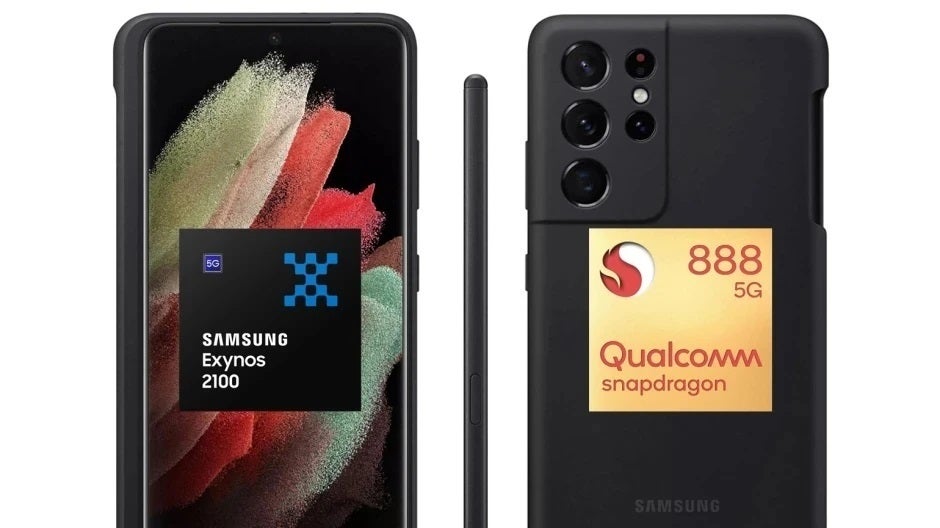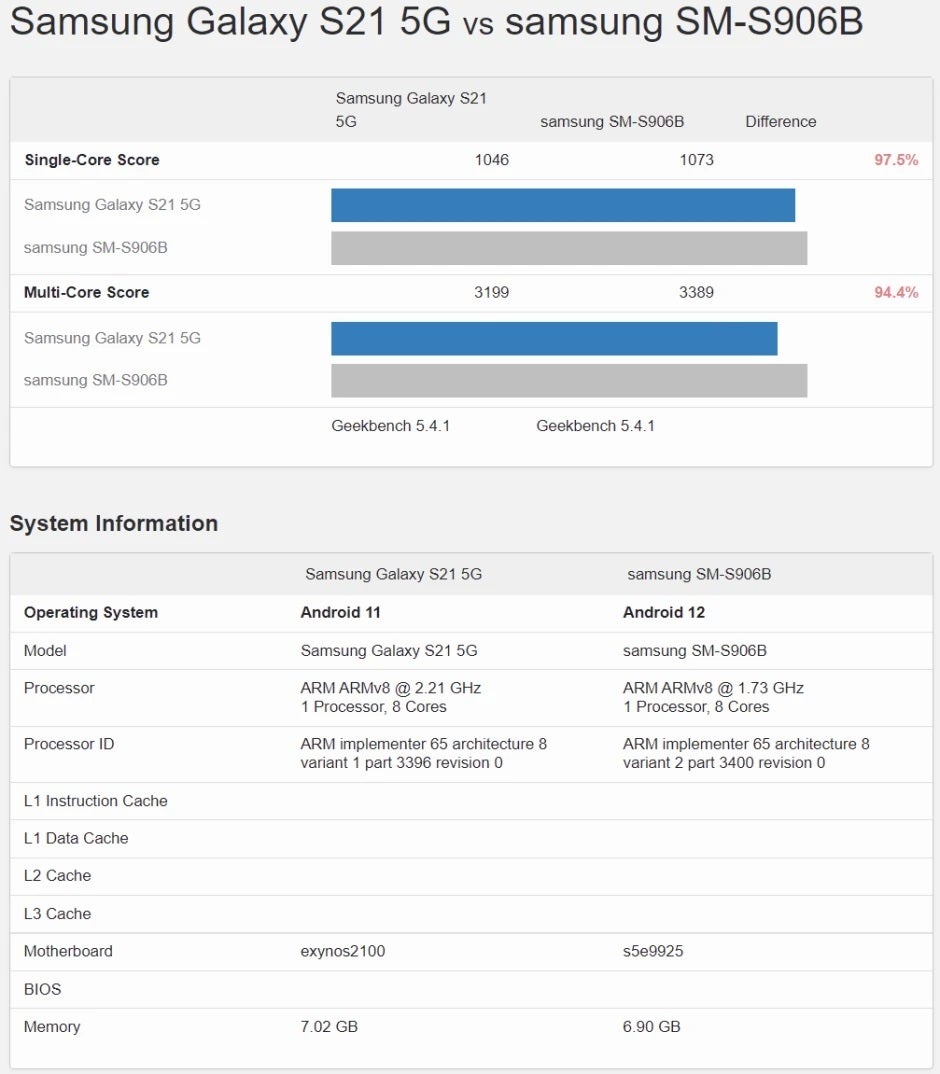Samsung to use both Exynos and Qualcomm for its Galaxy S22 lineup
Another day, another Galaxy S22 rumor. Even though the next Galaxy Unpacked event is still months away, information about Samsung’s new flagship phones has been flooding the webspace for quite some time.
Thanks to those leaks and rumors, we know almost everything about the Galaxy S22 series. One area that’s still hazy though is the hardware situation. Earlier this month, an ex-Samsung employee said that all Galaxy S22 models will ship with a Snapdragon chip globally. Then another leak from the famous tipster IceUniverse clarified that the Galaxy S22 will still get Exynos 2200 in some regions.
Now there’s another piece of information that sheds some light on the subject. According to the Korean site TheElec, Samsung will use both the Snapdragon 898 and Exynos 2200 silicon inside the new Galaxy S22 series.
The Korean company will stick to its policy to offer Snapdragon-equipped flagship devices to customers in the US, while Europe and South Korea will be getting the Exynos 2200 versions of the same models.
Another interesting piece of information in the report concerns Samsung’s next generation of foldables. According to TheElec, the Galaxy Z Flip 4 and Z Fold 4 will use solely Snapdragon chips.
Galaxy S22 Exynos vs Snapdragon
What’s the big deal with the Exynos and Snapdragon you might ask? Samsung’s decision to use different chipsets in different regions has been polarizing people for years now. The thing is that back in 2019 the Exynos version of the Galaxy flagship series was not received well by the users. There was even a petition directed toward Samsung to stop selling Exynos-equipped smartphones.
Users complained about Exynos-equipped units being underpowered, thermal-throttling, and sucking the battery compared to their Snapdragon counterparts. Since then Samsung has made substantial steps to fix those problems, and the partnership with AMD is a part of the said steps. The upcoming Exynos 2200 will feature AMD GPU with RDNA architecture and ray-tracing capabilities.
There are some early benchmarks of the Exynos 2200, and it seems that the chipset will be a pleasant surprise. The Exynos 2200 result seems to be just a tad above that of the Galaxy S21 (Exynos 2100) but at much lower clock frequencies. The Exynos 2200 managed to score 1073 and 3389 in Geekbench’s single and multi-core tests respectively.On the other hand, the Snapdragon 898 Geekbench 5 results in the same tests are rumored to be around 1,200 points and 3,900 points. Given the lower clock rate of the Exynos 2200 prototypes, the final results should be much closer, though.
There’s yet another leak, suggesting that Exynos Galaxy S22 may lag behind Snapdragon 898 models in graphics.
Which one to choose?
It’s really hard to say, as it’s still early days. The AMD-Samsung partnership looks promising, judging by the preliminary results we’re getting in Geekbench. On the other hand, the AMD-equipped Exynos will be a first-generation chipset to some extent, so we might see some issues.
At the end of the day, this Snapdragon vs Exynos battle may not be even relevant, as those chipsets will be region-specific, and people won’t be able to really choose between the two (not hassle-free in any case). Let’s wait and see how this one plays out. Meanwhile, here are some hot Galaxy S22 leaks for you to munch while waiting.
Samsung Galaxy S22 leaks and rumors
For all the latest Technology News Click Here
For the latest news and updates, follow us on Google News.


